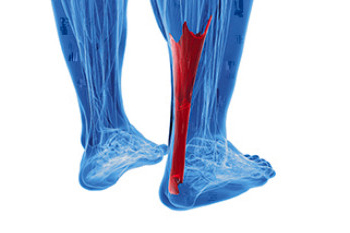
The Achilles tendon connects the heel to the bones of the leg. When it becomes irritated or swollen, inflammation may set in that causes a painful condition known as Achilles tendonitis. Other symptoms include stiffness and soreness in the heel, a crackling sound when the ankle moves, pain when the foot is extended, and weakness in the affected leg. Achilles tendonitis is common among athletes whose sport or activity puts particular stress on the heel, such as running, jumping, basketball, dancing, skiing, or figure skating. A walking boot or cast may be necessary for stability, and custom orthotics may help to keep the injury from recurring. In severe cases, surgery may be required. Seeing a podiatrist is a wise way to find out the best treatment options to combat this condition.
Achilles tendon injuries need immediate attention to avoid future complications. If you have any concerns, contact one of our podiatrists of Lansing Podiatry. Our doctor can provide the care you need to keep you pain-free and on your feet.
What Is the Achilles Tendon?
The Achilles tendon is a tendon that connects the lower leg muscles and calf to the heel of the foot. It is the strongest tendon in the human body and is essential for making movement possible. Because this tendon is such an integral part of the body, any injuries to it can create immense difficulties and should immediately be presented to a doctor.
What Are the Symptoms of an Achilles Tendon Injury?
There are various types of injuries that can affect the Achilles tendon. The two most common injuries are Achilles tendinitis and ruptures of the tendon.
Achilles Tendinitis Symptoms
- Inflammation
- Dull to severe pain
- Increased blood flow to the tendon
- Thickening of the tendon
Rupture Symptoms
- Extreme pain and swelling in the foot
- Total immobility
Treatment and Prevention
Achilles tendon injuries are diagnosed by a thorough physical evaluation, which can include an MRI. Treatment involves rest, physical therapy, and in some cases, surgery. However, various preventative measures can be taken to avoid these injuries, such as:
- Thorough stretching of the tendon before and after exercise
- Strengthening exercises like calf raises, squats, leg curls, leg extensions, leg raises, lunges, and leg presses
If you have any questions please feel free to contact our office located in East Lansing, MI . We offer the newest diagnostic tools and technology to treat your foot and ankle needs.
